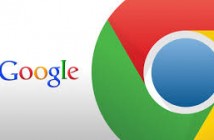Facebook (NASDAQ:FB) revenues stood at $595 million in the UK in 2013 and it paid $0 in taxes. Over the years we have seen big names like Facebook (NASDAQ:FB), Amazon and Starbucks being accused of generating substantial revenue but paying either nothing or a very small piece of the chunk in corporation taxes. For Facebook (NASDAQ:FB) this tax is 12.5% of its earnings. According to annual figures revealed on Tuesday, the company’s revenue was at $79.89 million for the year. A better performance than the $58.75 million it earned in 2012. According to a research company called eMarketer, Facebook (NASDAQ:FB) produced a striking figure of $595 million in the UK in 2013.
As talks of non-payment of taxes are surfacing, critics are also looking into the optimal taxation theory, according to which corporations should not be taxed at all. So for companies not paying taxes it is an achievement to stand up for their rights. But this isn’t the line of thought the press is adopting. Headlines in different newspapers expressed different views. Some of them included;
- According to the press Facebook (NASDAQ:FB) has refused to pay taxes for the second time around because in 2013 the company took a similar stance on this issue. The company didn’t pay tax, but the employees enjoyed shares worth tens of millions.
- Facebook (NASDAQ:FB) UK figure showed revenues rose from 34.6 million pounds to 49.8 million.
- Facebook (NASDAQ:FB) UK labels its revenue earnings as a result of its marketing and engineering services, as the company has much of its income from ad revenue from Ireland and it gives them a way to use Ireland’s much lower tax rates. Its revenue from advertising rounded up to 371 million pounds, which is a striking increase by 67% over last year’s 222 million pounds.
The issue here is that Facebook (NASDAQ:FB) UK didn’t earn the 371 million last years it was Facebook (NASDAQ:FB) Ireland. So the taxing should be done according to Ireland’s legal system. This is what the European Union system of corporate taxation is all about. On the other hand, Facebook (NASDAQ:FB) UK actually suffered a loss due to its grants of restricted stock for its employees. But the RSU grants are taxed as full income, with a 45% tax rate, higher than the 24% tax rate; this rounds up to enormous figures on the wrong basis.
Another point to ponder over is that Facebook (NASDAQ:FB)’s approach in Europe regarding taxes is not to get away with nonpayment rather it’s a delaying tactic. Once the profits are revealed in the US, Facebook (NASDAQ:FB) will pay the 35% US corporate income tax after deducting the amount it has already paid in Europe.
The optimal taxation theory actually goes against the system set up for corporate taxes. Its method is that instead of charging corporate taxes, it’s more feasible to gain that amount through people’s income, earnings through their purchases and land value tax. But chances are that these rules would go unnoticed and instead Facebook (NASDAQ:FB) would be threatened to perform its duty of contributing more in the form taxes to the UK economy.



Pingback: ค่ายคาสิโน XG CASINO
Pingback: บ้านมือสอง
Pingback: helpful hints
Pingback: บอลยูโร 2024
Pingback: ติดตั้งโซลาเซลล์
Pingback: Tha Phae Stadium tickets
Pingback: ทรรศนะบอล
Pingback: hiếp dâm trẻ em
Pingback: dultogel com
Pingback: marbo 9000
Pingback: BAU iraq
Pingback: กายภาพ
Pingback: สล็อตเกาหลี
Pingback: pgslot
Pingback: outcall massage Bangkok
Pingback: chat rooms
Pingback: go to this website
Pingback: pgslot
Pingback: pk789
Pingback: การซื้อหวยออนไลน์ ที่ เว็บ CAT888หวย
Pingback: sugar rush
Pingback: lovecasino
Pingback: หวยดีใจ เว็บหวยออนไลน์ บาทละ 1000
Pingback: พิมพ์โปสการ์ด
Pingback: league88
Pingback: LSMTHAI ครบทำเงินได้ไม่อั้น
Pingback: xshell
Pingback: Book of Ra
Pingback: Cbd oil uk
Pingback: headphone for gaming hyderabad
Pingback: situs toto
Pingback: เน็ต บ้าน ais
Pingback: เอเจนซี่ศัลยกรรมจีน
Pingback: share like and more
Pingback: นำเข้าสินค้าจากจีน
Pingback: PG Soft หรือที่เราเรียกกันว่า PG ค่ายเกมสล็อตชั้นนำของโลก
Pingback: พรมปูพื้นรถยนต์
Pingback: Sweet Bonanza
Pingback: Al-Yarmok University College 1
Pingback: แทงหวย